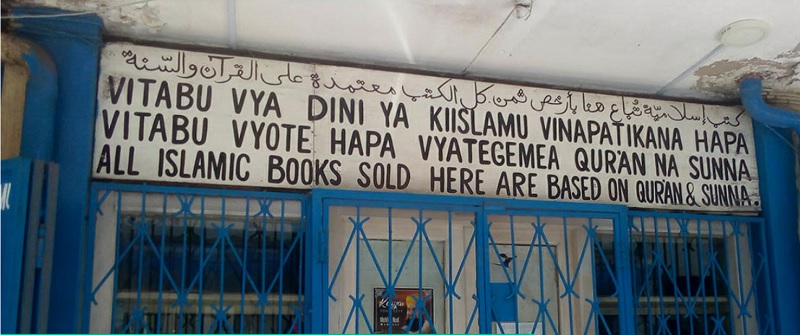KITLV/Royal Netherlands Institute of Southeast Asian and Caribbean Studies

- This event has passed.
Indian Ocean Lecture | The Portable Islam: Swahili Muslim booklets and network in the 20th-century Indian Ocean | Annachiara Raia
16/12/2020 @ 12:30 - 14:00

Printed Islamic booklets disclose important sources for Africa Indian Ocean intellectual history, ones that scholarship has neglected but are still known by local people.
Swahili literature has a longstanding and well-known manuscript tradition in Arabic script dating back to the eighteenth century. In a time of heavy social change in East Africa, transoceanic Islamic texts printed locally (coastal Kenya and Tanzania) and overseas (Cairo, Bombay, New Delhi), played a crucial role in negotiating Swahili Muslim intellectual discourse. Books and booklets printed in Swahili and adapted from Arabic started complementing and interfering with the Swahili Muslim local oral and textual culture.
Through this talk, Annachiara Raia, Assistant Professor of African literature at Leiden University (LUCAS) and senior researcher at the African Studies Center Leiden, will show how print culture in the twentieth century in East Africa has reshaped the textual circulation of religious and moral ideas among the Swahili Muslim reading publics. Her primary focus is on printed Islamic booklets—small, mainly of poetry, inexpensive and easy to travel with — which disclose important sources for Africa Indian Ocean intellectual history, ones that scholarship has neglected but are still known by local people. The key question aims at investigating printed adaptations and paring considerations on the medium of print as well as on the new potential rivalling media, i.e. radio and audio recordings. This presentation will benefit from a first survey on Swahili Islamic print culture in Nairobi and Mombasa carried out in July 2019, which confirmed the rich potential of my ongoing new line of research.
The Leiden Indian Ocean Lectures series is organised by the Leiden Centre for Indian Ocean Studies (Leiden University, KITLV/Royal Netherlands Institute of Southeast Asian and Caribbean Studies and IIAS).
Details
- Date:
- 16/12/2020
- Time:
-
12:30 - 14:00
- Event Category:
- KITLV Events
- Website:
- https://www.iias.asia/events/portable-islam-swahili-muslim-booklets-and-network-20th-century-indian-ocean
Organizer
- Leiden University, KITLV and IIAS
Venue
- Webinar



